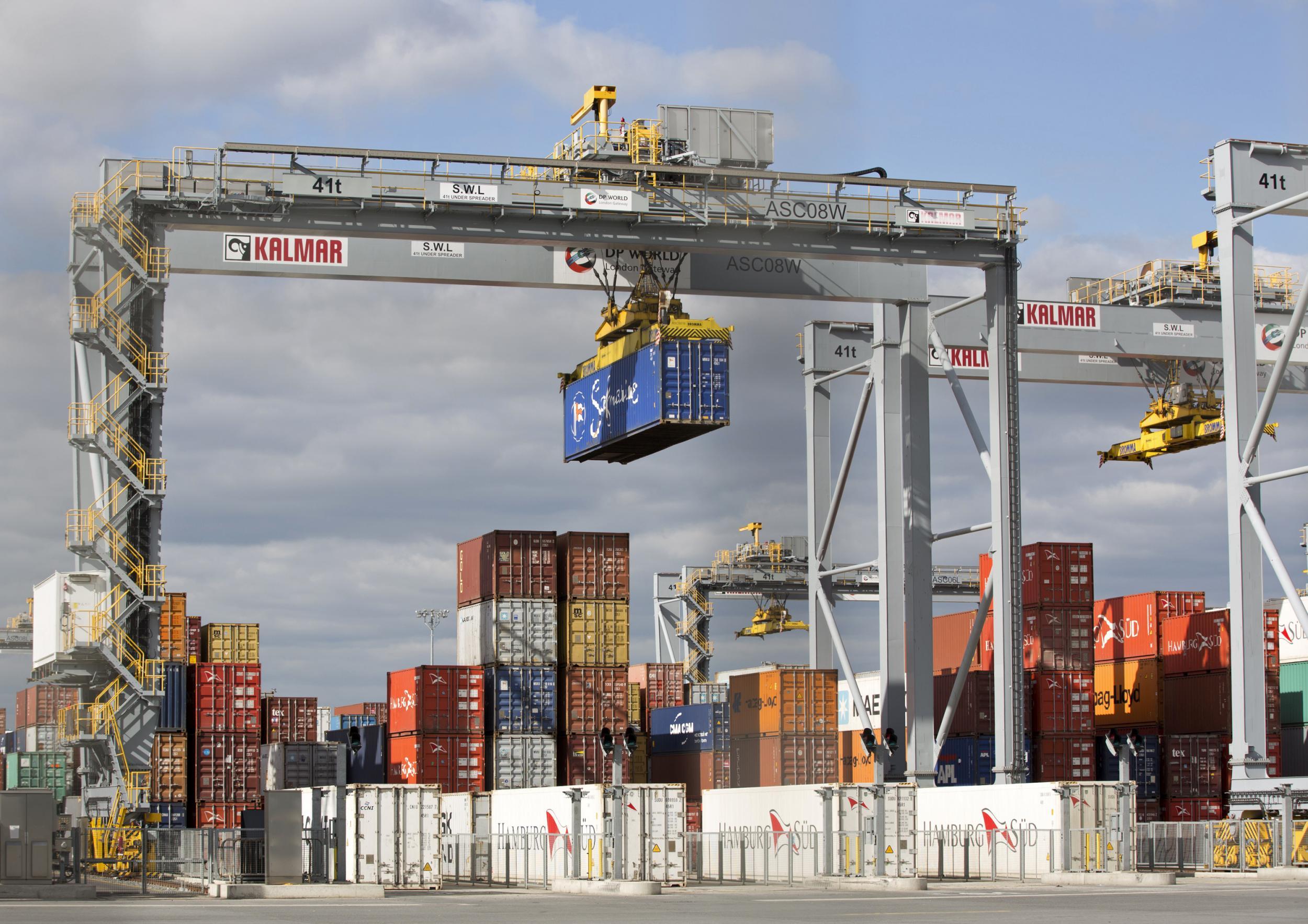Brexit is a chocolate orange that could fall apart at the first tap, says the NAO. It's right to be worried
The current customs system cannot cope with the near five fold increase in demand it will have to deal with post Brexit, and HMRC may not have its new one up and running in time

Brexit, yeah, Brexit. Take back control! No more Brussels bureaucrats! It’s gonna be great. Yeah Brexit. What, you don't like it? Quisling! Traitor! You’ll get vilence...
Sorry. For a brief moment I thought I’d try and see how a Brexiteer would respond to the latest dose of reality, courtesy of the National Audit Office.
The non partisan NAO has lambasted the Government’s “vague” plan for Brexit. Its boss Sir Amyas Morse compared it to a “chocolate orange that could fall apart “ar the first tap”.
He was speaking upon the release of a detailed report his agency has released on the subject of customs.
It contains a lot of worrying facts, which Sir Amyas illustrated with a bit of humour. As many have when making a case for sanity.
So, let's take a look at the facts that go with Sir Amyas' wonderful (and bleakly comic) description.
The hardline approach adopted by Theresa “I shed a tear at the election result” May is going to have major implications for customs. That's the trouble with pulling out of a huge free trading area and customs union.
Now, HM Revenue & Customs currently estimates that there will be a staggering 255m customs declarations per year after Mach 2019. It bases this on current levels of UK/EU trade, which will be subject to whatever new customs arrangements are negotiated with our European partners.
That figure represents a 200m increase on the 55m existing declarations HMRC's current system has to deal with. That’s right: The amount of declarations HMRC will have to cope with is about to increase by close to a factor of five.
Trouble is, the current system can cope with a maximum of 100m.
Now, HMRC is developing a new one, but there is still a long way to go. If all goes to plan - and that is a very big if - it is supposed to be in place by January 2019. Just two months before the UK plans to leave the EU.
As you can see, HMRC has very little margin for error if it wants to avoid goods piling up at ports on both sides of the English Channel, and (potentially) empty supermarket shelves.
The NAO says that HMRC has been engaging with “stakeholders” while formulating its plans, but it warns that there are ‘significant gaps” in its knowledge.
It has been trying to install its new programme with a ”significant” level of vacancies too. At the end of March there were 67 of them. Nine needed to be filled “immediately” to prevent an adverse impact on delivery.
Because, by contrast to Brextieers, I’m using facts to inform this piece, it is worth noting that some of them have been filled. According to the NAO, at the end of June the number was down to 48. Of those, four required filling immediately.
But still: Tight timetable, staff shortages, plus a huge amount of uncertainty hanging over everything. It doesn’t look good.
The Brexit Department will sort it all out, though, right? Erm, no.
The NAO's report criticises ministers for leaving HMRC to get on with it alone. It has had to start working on contingency plans should problems crop up, but without any meaningful ministerial support.
The NAO says this is “not reasonable” and that “Government as a whole must decide what priority it attaches to the programme, and whether any extra costs linked to having a suitable customs system in place by early 2019 are an insurance premium worth paying”.
I think that means that they are.
Billions of pounds of trade is at stake here. British businesses will be badly damaged if things go wrong.
Brexiteers don’t much care about “forrenurs” but it will delay what they export to us too. Such as their food, which is rather important given the UK doesn’t (and can’t) feed itself. Hence my comment about supermarket shelves. There’s another fact for you.
Based on all that, it’s no wonder Sir Amyas resorted to his colourful description involving that chocolate orange. It was clearly designed to get attention (it worked) because he’s clearly worried.
He has good reason to be. When he asked Brexit Secretary David Davis about the possibility of seeing a report on preparedness for Brexit across government the response was “vague”.
So what did Brexit minister Steve Baker have to say about Sir Amyas' comments. He was blunt: “I don’t accept that is the case.”
He claimed that there is an active and energetic process in place and that his department will deliver a “smooth and orderly exit from the EU”.
Business news: In pictures
Show all 13Translation: Brexit, yeah, Brexit. Take back control! It’s gonna be great!
Mr Baker wouldn’t stoop to the bit that goes: Don’t like it? Quisling! Traitor! You’ll get vilence... At least I hope he wouldn’t.
Sadly there are plenty that would. Difficult things, facts.
Subscribe to Independent Premium to bookmark this article
Want to bookmark your favourite articles and stories to read or reference later? Start your Independent Premium subscription today.

Join our commenting forum
Join thought-provoking conversations, follow other Independent readers and see their replies